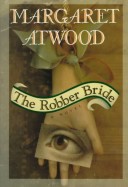
clementine
Written on Mar 10, 2019
When we watched Rosemary's Baby in a class I took on horror during undergrad, my professor said something that stuck with me: that even if you remove the supernatural and allegorical elements from the film, it's still terrifying, because it's about a woman's complete loss of bodily autonomy. I think the same is true for this book: take Zenia out of the picture, and it's still bleak and disturbing. It's a book about women struggling to shed their broken childhoods, whose relationships with men are by and large unhealthy - these things are true regardless of Zenia's (possibly demonic) influence.
There's a lot more than can be said here - about friendship forged through mutual adversity, about motherhood and daughterhood as trauma, about female characters as archetypes, about how women navigate male-dominated spaces. (Only Charis seems to bypass this in her professional life.) It's a slow burner, and I understand why it wouldn't appeal - but Margaret Atwood can frequently enchant me with her writing even when the narrative itself is not particularly thrilling.
